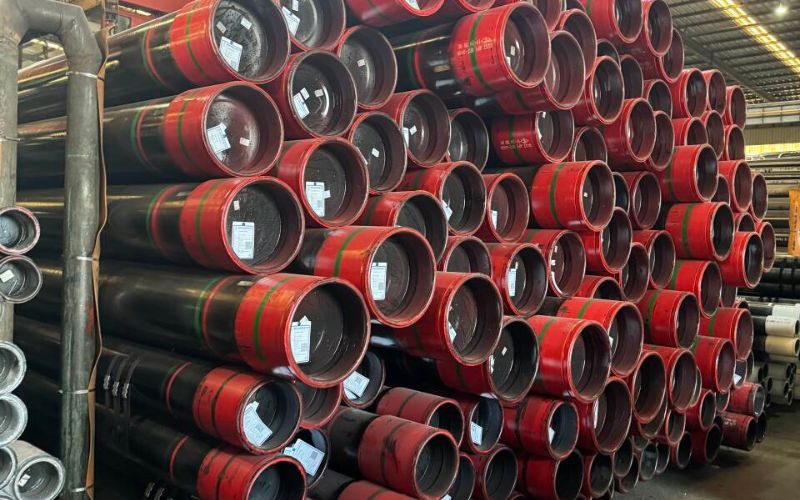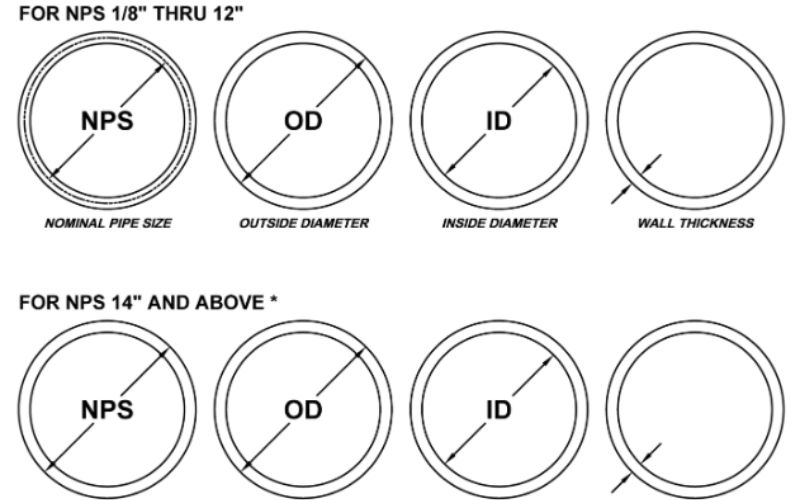Understanding Galvanized and Black Steel
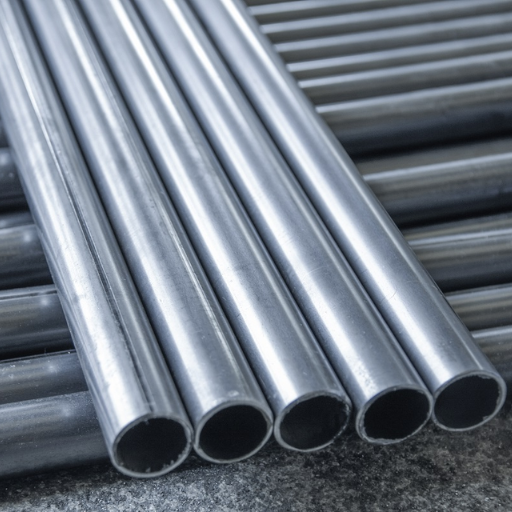
Galvanized steel is a steel material with a zinc coating that resists corrosion. This coating is an excellent rust inhibitor, making galvanized steel ideal for outdoor and wet environments, such as fencing, roofing, and construction. Black steel would be the untreated variety without a protective coating. Due to its untreated state, this steel offers greater strength and weldability compared to its counterpart; however, corrosion sets in immediately upon contact with moisture. Hence, galvanized steel is used when durability is imperative in corrosive environments. At the same time, black steel is primarily used due to its lower cost and some structural benefits for indoor or less corrosive applications.
What is Galvanized Steel?
Galvanized steel is a type of steel coated with a layer of zinc to prevent corrosion and increase durability. Typically, this protective zinc layer is applied through hot-dip galvanization, a technique in which the steel is immersed in molten zinc. This protective layer of zinc prevents the steel from being touched by water, oxygen, and all other natural forces that cause rusting and degradation. Recent data show that galvanized steel can last over 50 years in rural settings and within 20 to 25 years in harsher urban or coastal environments, thereby making it an appropriate choice for constructions, fences, and infrastructure in areas where time and weather play a harsh game. Additionally, galvanized steel requires minimal maintenance and is considered the most economical option compared to other materials that necessitate frequent treatments or replacements.
What is Black Steel?
The so-called black steel is in many industrial applications also referred to as “carbon steel.” Unlike galvanized steel, no zinc coating is applied to this type of steel. The name “black steel” comes from a dark, oxidized surface that develops during manufacturing when the steel is cooled after hot rolling. Black steel, being very sturdy and possessing good tensile strength, is widely used in construction, piping, and manufacturing, where corrosion resistance is not the primary concern.
According to most literature from the engineering and manufacturing sectors, black steel is often utilized in high-pressure and structural applications, such as gas transport and mechanical systems, due to its ability to sustain heavy loads and extreme pressures. However, the lack of a protective zinc coating on the galvanized steel makes the black steel highly susceptible to rust and corrosion; therefore, it cannot be used effectively outside or in very humid atmospheres unless it is provided with another form of protective coating. The limitation notwithstanding, the affordability of black steel and its versatility for many uses ensure that it will remain relevant to today’s industries.
Common Uses of Galvanized and Black Steel
Galvanized steel is one of the materials most employed in construction, automobile manufacture, and infrastructure due to its resistance to corrosion and longevity. It is irregularly utilized in applications such as roofing, fencing, ducts, and structural members where the atmosphere exerts its influence on them. Hence, their zinc oxide layer ensures their everlasting nature.
Black steel, on the other hand, is primarily used for gas and water piping within buildings and in structural framing where the threat of moisture is minimal. Furthermore, it holds great importance in the manufacturing industries for fabrication and welding, as black steel is strong and less expensive.
Understanding Galvanized Steel Pipes
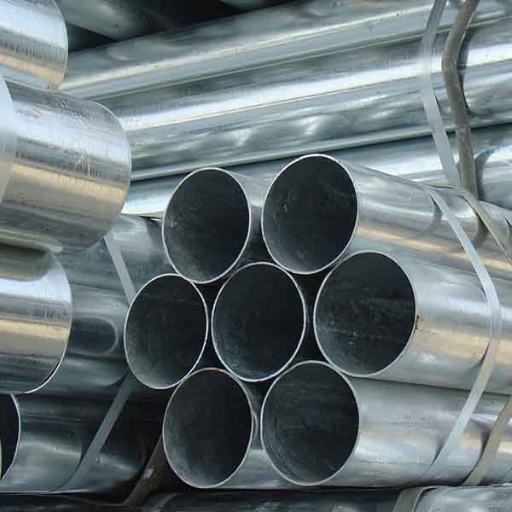
Galvanized steel pipes are steel pipes with a layer of zinc applied to the surface to prevent corrosion and ensure a longer life. The zinc coating serves as a protective layer for the metal, shielding it against moisture, oxygen, and other environmental elements that can cause rusting. The pipes become popular for outdoor and industrial uses where they are subjected to adverse conditions such as water supply systems, fencing, and scaffolding. The zinc coating, however, begins to wear off over time, especially with high water pressure and acidity, creating a need for regular inspection and maintenance.
What is Galvanization?
The process of galvanizing steel or iron involves applying a protective zinc coating to prevent it from rusting. The standard method of galvanization is hot-dip galvanization, where metal pieces are immersed in a molten zinc bath at approximately 860°F (460°C). This bond forms between the zinc and the underlying metal at a metallurgical level, resulting in the formation of layers of zinc-iron alloys. Therefore, the zinc coating acts as a sacrificial anode, meaning it will corrode to protect the metal over time, even if the coating has been scratched or damaged.
Modern galvanization technology focuses on enhancing the lifespan of the zinc coating and the resistance it provides. For example, new types of alloy coatings, such as zinc-aluminum-magnesium coatings, offer superior corrosion resistance in highly aggressive environments, including marine and industrial settings with elevated levels of pollutants. Additionally, considering environmental parameters, modern methods ensure that the ecological footprint of these processes is minimized to the greatest extent possible, without compromising the ecological protective capabilities of the coatings.
Benefits of Galvanized Steel Pipe
- Resistance to Corrosion: Galvanized steel pipes are resistant to corrosion and rust due to the application of a zinc coating on their external surface. Thus, even in humid and moist environments, it remains corrosion-free, boasting a long service life.
- Increased Toughness: The synergistic effect of zinc coating and steel corrosion resistance makes galvanized steel pipes very tough and less susceptible to wear and tear over time.
- Cost-Effective: Compared to other materials, such as stainless steel, galvanized steel pipes are more cost-effective and provide reliable performance for extended periods in various applications.
- Lower Maintenance: Galvanized pipes require minimal maintenance due to their robust protective coating, resulting in lower future maintenance costs for an infrastructure or piping system.
- Usage Versatility: These galvanized steel pipes find use in various applications, from plumbing to construction, to the outdoors where durability and resistance to environmental elements are required.
Typical Applications of Galvanized Pipe
- Water Transmission Systems: Due to their resistance to rust and corrosion, galvanized pipes are used in local and commercial plumbing systems for transporting potable water.
- Structural Supports: They are often utilized during the construction of roofing, balconies, and stairways, ensuring a strong and durable structure.
- Fencing and Outdoor Railings: These pipes enable the construction of fences, handrails, and barriers that withstand environmental conditions without deteriorating.
- Irrigation Systems: With significant exposure to moisture and soil conditions, they are used in the agricultural world to convey irrigation water.
- Industrial Piping: Galvanized pipes are commonly used in industrial settings to convey gases, oils, and other fluids, offering an economical alternative with a long lifespan.
Exploring Black Steel Pipes
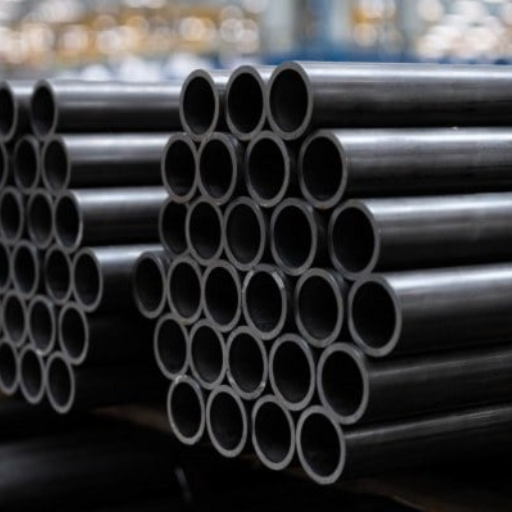
Black steel pipes are mild steel pipes with a dark-colored iron oxide coating on their surface that develops during the manufacturing process. Black steel pipes are not coated with zinc, like galvanized ones, so they enjoy a considerably lower price margin and are preferred for specific applications. These pipes are used in high-pressure systems for gas and water distribution, steam and air transportation, as well as in fire sprinkler systems due to their heat resistance and durability. However, black steel pipes do rust, therefore limiting their use in environments where prevention of rust is an absolute necessity. The application of these pipes in industrial and construction settings is due to their sheer strength and adaptability.
Characteristics of Black Steel
Black steel is a high-strength and durable material, making it an ideal choice for applications that require structural integrity. Its primary feature is its uncoated surface, which is different from others due to this manufacturing process. Black steel pipes differ from galvanized ones in that they do not carry an additional layer of zinc, and therefore boast a distinctive matte finish. While this lack of coating keeps costs down, it also makes black steel more susceptible to corrosion in moist environments.
Advantages of Black Steel Pipe
- Strength and Durability: Black steel pipes are renowned for their exceptional strength, making them ideal for transporting gas and fluids under high pressure without significant abrasion or damage.
- Black steel is more affordable than galvanized steel, as it does not require a zinc coating; hence, it serves to reduce project costs.
- Ease of Fabrication: This material, because of its nature, is easy to cut, weld, or shape, thus having diverse applications in several industries.
- Good Spray Thermal and Fire Resistance: Black steel pipes exhibit excellent thermal resistance compared to other materials, making them suitable for high-temperature applications.
- Industrial Application Compatibility: Black steel pipe, used in the most demanding oil and gas infrastructure for water and steam transportation, can assure dependable performance.
Common Uses for Black Pipe
- Gas Transportation: Black pipes are extensively used for transporting natural gas or propane within buildings due to their durability and leak resistance.
- Fire Sprinkler Systems: These systems use black steel pipes for fire suppression.
- HVAC Systems: Used in heating, ventilation, and air conditioning systems, black steel pipe efficiently transports water or steam.
- Industrial Manufacture: Pipes are utilized in the manufacturing of machinery and equipment to supply air, water, or other fluids.
- Oil and Gas Pipeline: The black steel pipe plays a fundamental role in the oil and gas business: transporting crude oil, refined products, and other petroleum-based materials from pipelines.
Key Differences Between Galvanized and Black Steel
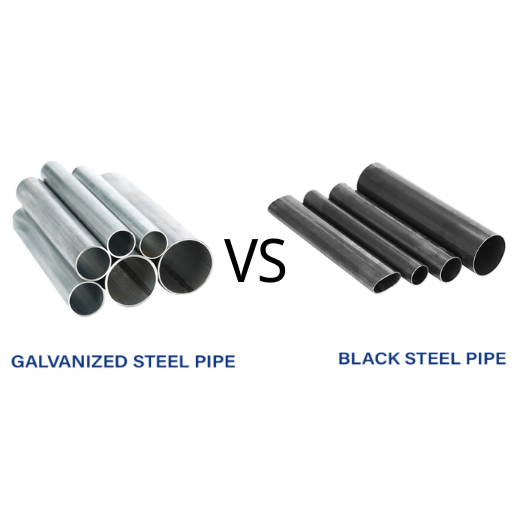
Galvanized steel is coated with a layer of zinc to resist corrosion, whereas black steel is uncoated, making it more prone to rust but stronger for high-pressure applications.
| Parameter | Galvanized Steel | Black Steel |
|---|---|---|
| Coating | Zinc-coated | Uncoated |
| Corrosion | High resistance | Low resistance |
| Strength | Less durable | More durable |
| Application | Low-pressure systems | High-pressure systems |
| Cost | Generally higher | Generally lower |
| Welding | Complex due to zinc | Easier without coating |
| Lifespan | Longer in moist areas | Shorter in moist areas |
| Maintenance | Low | High |
Corrosion Resistance: Galvanized vs Black
Galvanized steel offers superior resistance to corrosion due to its protective zinc coating, whereas black steel provides limited resistance in corrosive environments.
| Parameter | Galvanized | Black Steel |
|---|---|---|
| Corrosion | High resistance | Low resistance |
| Coating | Zinc-coated | Uncoated |
| Durability | Moderate | High |
| Maintenance | Low | High |
| Usage | Wet/moist areas | Dry/high-pressure |
| Cost | Higher | Lower |
| Lifespan | Long in moisture | Short in moisture |
| Welding | Complex | Easier |
Cost-Effectiveness of Each Material
All factors-from initial cost to long-term maintenance expenses-should be weighed when considering cast-galvanized versus black steel. In heavy dew zones and environments, cast-galvanized steel typically offers increased corrosion resistance, as it is zinc-coated; hence, it needs infrequent maintenance and replacement over time. For such long, wet, and corrosive projects, although it entails high initial costs, its greater longevity generally translates into lower costs.
On the contrary, with low initial purchase costs, black steel fits perfectly indoors or in high-pressure systems where it is hardly exposed to moisture. But it demands high maintenance in such corrosive environments and has a shorter life span thus increasing total expenditure over a longer term. Moreover, black steel’s ease of welding and compatibility with various processes further reduces labor costs during installation, making it still a viable option in specific controlled-use scenarios.
Thus, galvanized steel, the more durable aluminum cat, is best for outdoors applications or moisture-laden environments, presenting very little maintenance. Black steel is suitable for dry and high-pressure applications or indoor use, provided the upfront budget is tight. The selection of material depends on weighing the initial investment against the long-term performance requirements of the chosen project.
Durability Comparisons
The primary difference between galvanized steel and black steel in terms of durability lies primarily in their copper coating. The more protection against rust, the better for uses in outdoor environments and areas exposed to moisture, for more prolonged weathering. Black steel lacks a protective layer and is more prone to rust in humid and wet conditions.
Typically, galvanized steel has a longer lifespan, even in harsh weather conditions, with minimal maintenance required after a few years. It is therefore ideal for structural works, fencing, and plumbing in exposed sites. Black steel, although very strong from a mechanical point of view and tolerating high pressures, maintains favor for less exposed environments where corrosion is associated with dry conditions. If the project’s environment is sensitive to exposure from this perspective, galvanized steel provides better protection against deterioration.
Applications of Galvanized and Black Steel Pipes
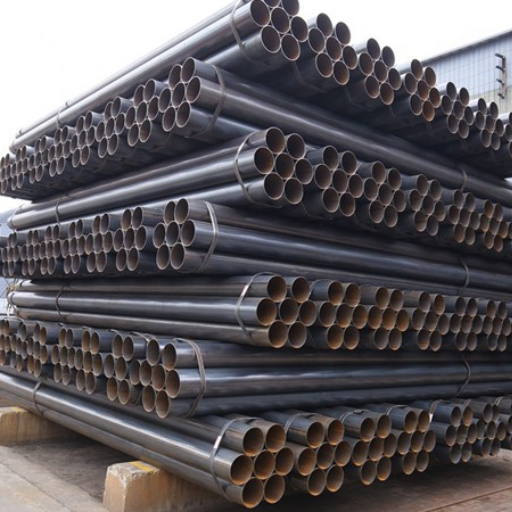
The manufacturers of galvanized steel pipes have found a profitable market wherever corrosion resistance is demanded. Such installations encompass water transportation systems, outdoor railings, and structural members subjected to weathering. Their zinc coating affords long life under exposure in moist and humid conditions; thus these are suitable for outdoor projects under variations of weather.
Black steel pipes are mainly used indoors. This is because black steel pipes are used to transport natural gas, oil, and steam for plumbing and heating systems, which require pipes that can withstand pressure and have sufficient mechanical strength. They also enjoy popularity in industrial and construction applications where corrosion is not a significant concern.
Use Cases for Galvanized Steel Pipes
Unlike black steel pipes, galvanized steel pipes are used where long life and resistance to corrosion are required. One such application is in water supply systems, where galvanized steel pipes are often incapable of transporting drinking water safely due to rust formation. In contrast, the zinc coating allows water to be transported without the danger of contamination or rust. For outdoor construction works such as fencing, guardrails, and scaffolding, galvanized pipes are often preferred, as these projects are frequently exposed to moisture and weathering. Besides irrigation systems and greenhouses, galvanized steel pipes are also used in agriculture. Their versatility, reasonable cost, and extended service life make them a favorable choice in both residential and industrial projects.
Use Cases for Black Steel Pipes
Black steel pipes are broadly used for the transportation of gas and liquid in an industrial environment for natural gas, petroleum, and steam systems as they are capable of resisting high pressure. They are also commonly used for the construction of fire sprinkler systems for durability and fire prevention. Hence, black steel pipe is a structural component in the construction of various types of frameworks and supports required for stability in numerous projects. Since they remain unyielding at high temperatures, they would be the best choice for boiler systems and other high-heat-related applications.
Choosing the Right Pipe for Your Project
From my observations, I have come to realize that several critical factors must be taken into consideration to determine the right pipe for a project. I start with the application itself, be it for water transport or gas system, for structural support, or something along those lines involving high temperatures. Black steel pipes are preferred in cases of high pressure due to their strength and durability. If corrosion resistance is a concern, my choices will always be galvanized steel or stainless steel. We should also consider pipe sizing in this regard for without proper sizing, the system will be subject to poor performance and safety threats. Additionally, I think operating conditions, such as temperature and pressure, should be considered to match the pipe’s capabilities with the project’s requirements. The accommodation of these factors ensures the pipes selected will satisfy both the functional and safety requirements.
Reference Sources
-
What Is The Difference Between Galvanized And Black Pipe – A detailed comparison of galvanized and black steel pipes, including their characteristics and uses.
-
Black/Galvanized Steel/Iron? What’s the difference? – A discussion on the differences and applications of black and galvanized steel in plumbing.
-
Black steel vs galvanized steel: Understanding the differences – Insights into the corrosion resistance and other key differences between black and galvanized steel.
-
Galvanized Steel vs. Aluminum: The Key Differences – While focused on aluminum, this source provides valuable insights into the advantages and disadvantages of galvanized steel.



